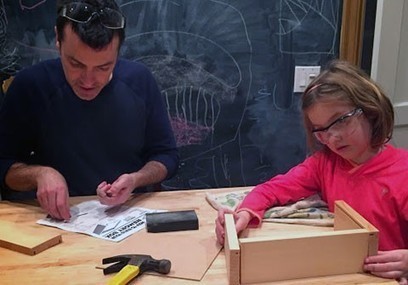Students have an innate desire to learn that needs to be nurtured through teaching practices that encourage learning autonomy, relatedness, and competence, the three core elements of SDT.
Research and publish the best content.
Get Started for FREE
Sign up with Facebook Sign up with X
I don't have a Facebook or a X account
Already have an account: Login
Teaching and learning in the 21st Century - meeting the pedagogical challenges of digital learning and innovation for the iGeneration
Curated by
Tom D'Amico (@TDOttawa)
 Your new post is loading... Your new post is loading...
 Your new post is loading... Your new post is loading...

SMARTERTEACHER's curator insight,
April 6, 2015 11:40 AM
Amazingly, if students love learning, grades seem to follow. Reversing the paradigm from grades equal learning to LEARNING equals grades. |

Scott Langston's curator insight,
May 28, 2013 12:32 AM
The truth is out there - we just need to find the time and the creative space to access it! |
















This article starts by looking at intrinsic vs. extrinsic motivation and theorizing that extrinsic motivation needs targeted more in education settings. What struck me right away the assumption that "We are all motivated to grow and develop. Students are naturally curious and inclined to learn about their environment." The article then uses that assumption to springboard the rest of the argument about self-determination theory (SDT) as having a critical place in the classroom, but I really would have liked to hear a deeper dive into that assumption before it was used as such a huge foundational argument. That very well may be true based on research, but I wish it was stated if so. I do believe that theory and have seen other sources that back up the statement, but I guess I would have liked to see a little more of dive into motivation itself and how it manifests in educational environments before going into SDT.
Now, diving into SDT, the foundations seem very strong to me: autonomy, relatedness, and competence. I have personally seen these foundations work well in the higher education field when we encourage instructors to use these foundations instead of older, intrinsic models. When it comes to automony, which the article describes as giving students choices as to not only what they would like to learn, but how they would like to learn material, we do attempt to give students "plan of study" type of activities occassionally to guide their learning. Often times students will still cover all of the topics that the instructor has identified as important, but in an order and manner that lines up best with their style of learning. So, automonous learning can take on a couple different forms.
Relatedness is a fairly simple concept that makes a lot of sense on the surface. Isolation is major target here and the article states that the more that students feel like they belong in an environment, the more they will succeed. In fact, this is demonstrated with our 8295 course, where we were allowed to pick groups with topics that interested us for our client project. We were not isolated covering one topic per person, but we got together with a group that had something in common and that brought a sense of belonging that will certainly lead to better course success.
Lastly, competence is covered as a major factor of success. That is, a student believing that they have the capability to succeed. This is something that manifests itself in my day-to-day work when helping instructors think through measurable outcomes. We also occassionally set up practice activities for students to figure out where they are on a topic before it is presented in a class, and they then get resources to help them feel supported in their position. Giving them to help them reach goals - no matter what level of expertise they bring to the course or the courses individual topics - is extremely important to learning success.